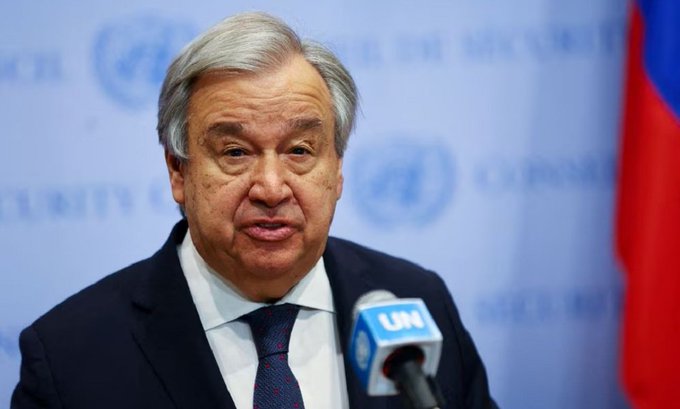UN Secretary General Antonio Guterres said that the UN meeting in Doha “was about developing a common international approach, not about recognition of the de facto Taliban authorities.”
Speaking at a press conference after the Doha meeting on Afghanistan’s situation, in which envoys of more than 20 countries and organizations participated, Guterres said that “we all understand each other’s concerns and limitations but agreed that it was in everyone’s interest–for most the Afghans– to work together.”
“Participants agreed on the need for a strategic engagement that allows for the stabilization of Afghanistan but also allows for addressing important concerns,” he said, adding that the participants are worried about the stability of Afghanistan, and “they have expressed those serious concerns; they relate to the persistent presence of terrorist organizations’ risk for the country, the region and further… the lack of inclusivity, which importantly includes human rights, particularly those of women and girls. severely undermined by recent Taliban decision.”
He also stressed the need for engagement with the interim Afghan government, saying that in order to achieve “our objectives, we cannot disengage and many call for engagement to be more effective and based on lessons which we have learned from the past.”
Earlier, the head of the Qatar-based political office, Suhail Shaheen, told TOLOnews that he met with several Afghanistan-focused envoys.
“I have met with some special envoys of the countries and in addition to the bilateral relations, I shared the stance of the Islamic Emirate with them,” he said.
“This meeting is set because the decisions of the interim government created a crisis in the country. The UN is giving a clear message. It is important for the history of Afghanistan to realize who is responsible for this crisis,” said Torek Farhadi, a political analyst.
The UN Secretary General also said that the UN will continue its convening power to advance a forward-leaning approach and put the Afghan people first.
“After a round of consultations, I am ready to convene a new similar meeting,” he said.
According to Guterres, 28 million people will need humanitarian aid to survive this year and six million Afghans are “one step away” from famine conditions while “funding is evaporating.”
He said the humanitarian response plan is seeking $4.6 billion and only $294 million, 6.4 percent of the total funding required, has been received.
The current ban on Afghan women working for the UN and national and international organizations is unacceptable and puts lives in jeopardy, he said.













